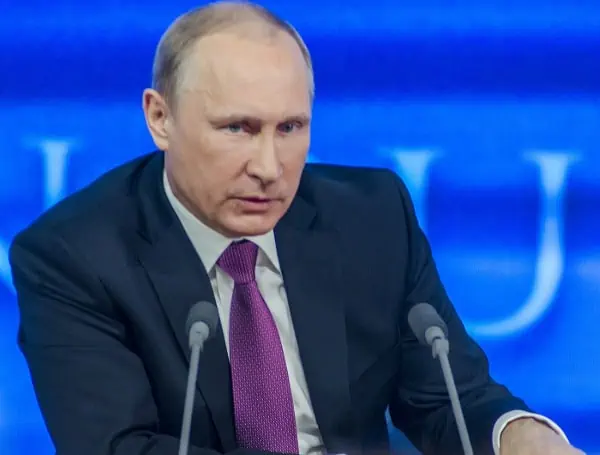Ambassadors from Ukraine and NATO’s 32 member states convened in Brussels on Tuesday following Russia’s recent test of an experimental hypersonic intermediate-range missile. The missile strike, targeting the Ukrainian city of Dnipro last week, has heightened tensions and raised concerns over Moscow’s escalating aggression.
Russian President Vladimir Putin confirmed the test of the new Oreshnik missile, describing it as a response to Ukraine using U.S. and British-supplied weapons to strike within Russian territory. Putin warned that Moscow reserves the right to target military facilities in nations supplying arms to Ukraine.
READ: Global Warnings Of Escalation As Russia Deepens Ties With Iran-Backed Houthis Amid Ukraine Conflict
Ukrainian President Volodymyr Zelensky condemned the missile strike, calling it “the latest bout of Russian madness,” and urged NATO allies to provide updated air-defense systems to counter the new threat.
Ukraine called for an emergency meeting of the NATO-Ukraine Council to discuss the security implications of Russia’s missile test. Kyiv hopes for “concrete and meaningful outcomes,” including commitments to bolster Ukraine’s defensive capabilities.
However, NATO officials tempered expectations, indicating the meeting would likely focus on reaffirming existing support rather than producing new initiatives. A NATO official stated the gathering provides “an opportunity to discuss the current security situation in Ukraine” with updates from Ukrainian officials via video link.
NATO reiterated its commitment to Ukraine, emphasizing that Moscow’s deployment of advanced weaponry will not deter the alliance from supporting Kyiv.
READ: Russia Allegedly Recruits Yemeni Nationals To Fight Amid Growing Ties With Iran
The meeting comes amid uncertainty over future Western backing for Ukraine, particularly following the re-election of Donald Trump as U.S. president. Trump has questioned the extent of Washington’s military aid to Kyiv and suggested pursuing a swift resolution to the conflict.
Senior NATO commander Rob Bauer expressed concern over potential shifts in U.S. policy, stating, “I cannot imagine that it is in the interest of the United States to allow Putin to emerge from possible negotiations as a winner.”
On the ground, Ukrainian forces face mounting challenges as they struggle to repel advances by Russian troops in the eastern regions. The conflict, now in its second year, continues to strain Ukraine’s military resources and civilian infrastructure.
READ: U.S. Green Lights Ukraine To Use American-Supplied Land Mines Against Russia
The NATO-Ukraine Council, established in 2023, allows Ukraine to call consultations with NATO allies in response to significant security threats. While Tuesday’s meeting is not expected to yield major policy changes, it underscores the alliance’s ongoing support for Ukraine amidst Russia’s increasing aggression.
The situation remains volatile as NATO leaders seek to balance steadfast support for Ukraine with diplomatic efforts to de-escalate tensions.
Please make a small donation to the Tampa Free Press to help sustain independent journalism. Your contribution enables us to continue delivering high-quality, local, and national news coverage.
Android Users: Download our free app to stay up-to-date on the latest news.
Connect with us: Follow the Tampa Free Press on Facebook and Twitter for breaking news and updates.
Sign up: Subscribe to our free newsletter for a curated selection of top stories delivered straight to your inbox.

